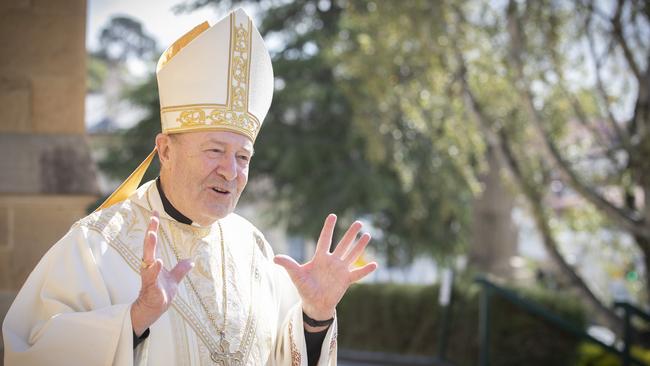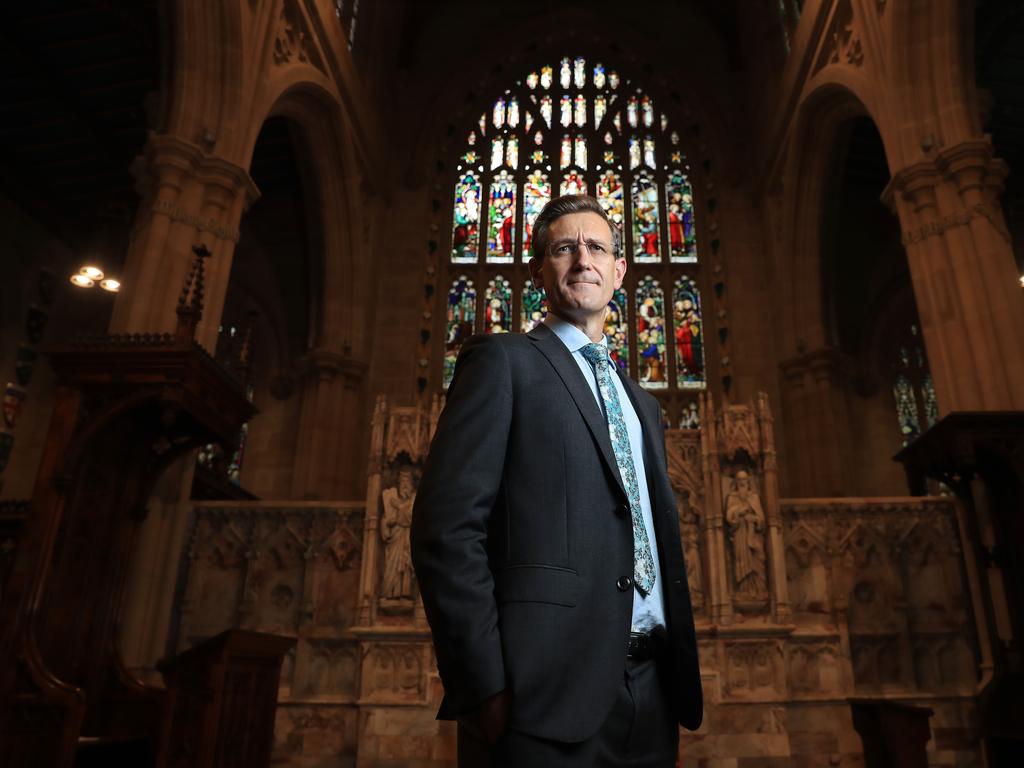Green-left lawfare forcing people of faith to margins
We are seeing the opening of a new religious culture war.

However, now we are seeing the opening of a new religious culture war. The Australian Law Reform Commission’s recommendations to remove some of the protections for religious institutions from the Sex Discrimination Act, rather than acknowledging the status quo that has allowed the flourishing of religiously based schools like mine, has apparently decided to go along with the green-left’s aspiration to push people of faith to the outer limits of civic and intellectual life.
The commission advises abolition of the exemptions for faith-based institutions, which might result in the only staff to be hired on the basis of religion in schools will be those who teach religion. That will ignore the whole ethical and moral outlook the school inculcates through every part of its teaching, and its expectations about student and staff behaviour.

The irony is that Catholic high schools will often hire someone like my old history teacher, Catholic or not, as long as – and this is the salient point – they are sympathetic to the school’s ethos and are not actively against it. In other words, as long as the religious character of the school is not undermined. But what happens when a member of staff or a student becomes active against a school’s religious underpinning? It is a minefield of lawfare. The most vocal in support of abolition of the exemptions are the sexual identity groups. The rights of minorities should be respected, but nowhere in the ALRC’s recommendations are mentioned the rights of the majority, the parents, who presumably send children to a faith-based school for a reason. In fact, a third of the nation’s children are educated in private schools; most of these are Catholic.
There was no problem with religious discrimination in Australia until the gay marriage issue, hence a proposed religious anti-discrimination act first put up by Scott Morrison, and taken up by Anthony Albanese as an election promise. Now things have become complicated. Such an act has been rejected by the right of Albanese’s own party, and by the Liberals, if it also means getting rid of the exemptions. The Prime Minister is in a bind. If he follows the ALRC recommendation to get rid of the exemptions, that would mean no bipartisan agreement. So a religious anti-discrimination act cannot get up – for now.

So, in all of this, where are the faith leaders, especially the Catholic bishops? Good question. There are many church leaders and lay people who feel strongly that religious institutions should not have to rely on exemptions to maintain their character. We have religious freedom, in both the Constitution and in international law, and we should use it to maintain the religious character of religious-based institutions. Albanese has been giving faith leaders assurance of a satisfactory outcome and a new religious anti-discrimination Act – despite his failure to stop the takeover of the Calvary hospital by the ACT government. This has kept the bishops quiet. Only the sidelined groups, the smaller religious groups, would speak out. The Catholic bishops have been restrained because they were hoping for a bipartisan solution so a new religious freedom Act wouldn’t be held to ransom by the Greens in the Senate.
So why did Albanese want to keep the faith leaders onside, especially Catholic bishops? Because they all supported him on the voice. However, despite that support there was not one archdiocese that supported the voice. Albanese played on Morrison’s failure to deliver a religious anti-discrimination Act, but now Albanese is between a rock and hard place. Faith leaders who trusted him to cement religious freedom now view the status quo as the least bad result, and the green-left sees it as a betrayal.
But what does this mean for the future? Many Catholic lay people can see that the bishops are too reliant on old alliances, especially Labor alliances. They need to be more independent. They also need to be more collegiate. Archbishop Julian Porteous was almost alone in his fight against the anti-discrimination board in Tasmania, which was the opening salvo in this new religious culture war. Even if the government accepts the status quo, this war will continue with added ferocity if, as predicted, Labor is forced into minority government with the Greens.
Make no mistake, any future Act that does not include the exemptions would actually pervert freedoms and encourage lawfare. By defining the scope of religion it will narrow the scope of religion by placing restrictions born of other anti-discrimination provisions. This will effectively push people with religious faith, and the institutions that support them, to the edge of the public square – and out of the market place of ideas.








When I was at school, the best history teacher I ever had was Jewish – and this was at a large Catholic girls school in Sydney, which still had a teaching staff of nuns. The fact she was not a Catholic was never an issue – even in the days when practice of the faith by the whole student body and staff was expected. The point was, her outlook was obviously sympathetic to the Catholic ethos of the school that governed our behaviour and general view of the world. That ethos also taught us tolerance, respect and admiration for the good character of those who do not share our faith.